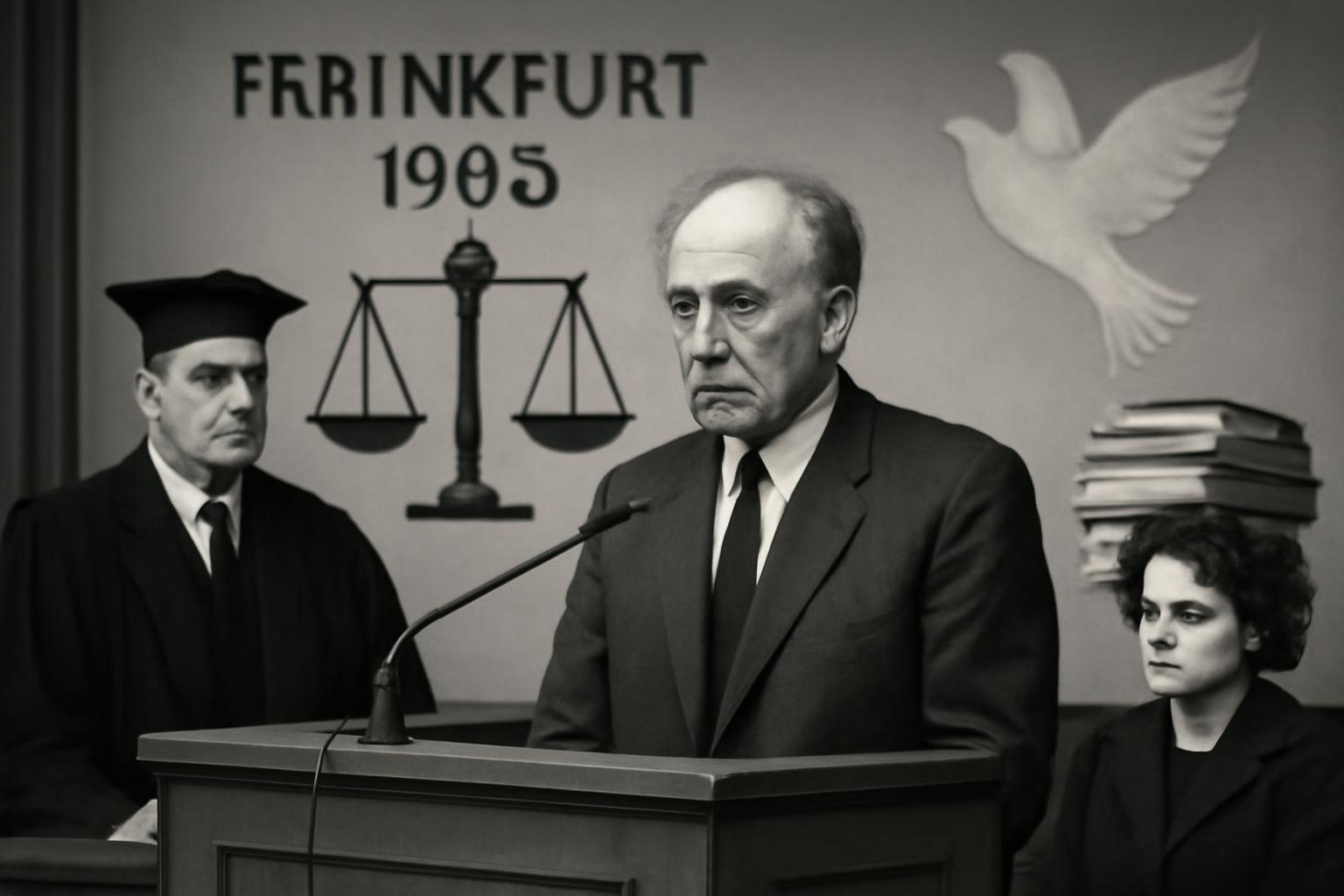What unfolded in Frankfurt in 1965 was a beginning rather than a completion. A court, confronting the most grievous acts of a regime that had organized systematic suffering on an industrial scale, brought 22 defendants before judges and counsel, witnesses, and victims’ representatives. After countless days of testimony, the chamber pronounced six life sentences, a spectrum of prison terms, and a handful of acquittals. The proceedings assembled a chorus of survivors and experts who described the ramp, the selections, and the gas chambers with a clarity that only testimony and careful record-keeping could achieve. The prosecutors, led by Fritz Bauer, insisted that accountability must be pursued within the ordinary institutions of the state, even when public sentiment recoiled at the difficulty of such a task. And the archive—taped testimony from hundreds of witnesses, many preserved for the ages—made memory into something legible, something that could be revisited and studied. Yet the court did not, and perhaps could not, reach every agent of that system; thousands of guards and administrators never faced German justice. The later arrival of a legal standard recognizing the concentration camps as an “industrial murder machine” and the evolving notion that even lesser roles could amount to aiding murder shows that memory and law can mature across generations, even as they struggle with the scale of a crime that certainty itself could scarcely contain.
From my vantage, the drama is not merely in the numbers or the verdicts, but in the fragile architecture of a free order attempting to confront its own past. The Frankfurt trial dramatizes a fundamental truth about civilization: the rule of law is the only instrument by which a society can domesticate coercive power after it has been unleashed. Here was a system that had learned, by bureaucratic habit and institutional habit, to transform human beings into instruments of killing. The danger, which Hayek has long warned against, is not only the violence of the few but the quiet, day-by-day expansion of a collective scheme in which moral reasoning is outsourced to the machinery of the state. The court’s dependence on survivors’ testimony and on carefully preserved records was itself a defense of the liberal order against amnesia and cynicism. If memory is the shield against repetition, then memory must be grounded in reliable institutions—recorded testimony, public debate, and a consistent, general framework of law that does not bend to passion or expediency.
Yet the experience also exposes a stubborn truth about the limits of any single instrument of justice. Legal systems do not, and perhaps cannot, instantly equalize moral deserts with formal sentences, especially when they confront a vast paramilitary machine. The fact that more than eight thousand guards went unpunished in Germany’s courts then does not merely mark a historical shortcoming; it reveals a structural hazard in the idea that punishment within a given political community can expunge a crime of such scale. The development only in later decades, culminating in a broader legal recognition in 2016 that began to acknowledge the multiplicity of culpable roles, signals a maturation of the rule of law, not its triumph. In this sense, justice here is iterative rather than instantaneous; the law learns, slowly, to see wrong as it must, even when it cannot pursue every agent with equal vigor.
There is, in this history, a bracing argument for the vitality of civil society in preserving truth. The testimonies, the tape-recorded recollections, the UNESCO-recognized archives—these are not trophies of triumph but instruments of restraint. They remind us that memory, to be trustworthy, must be anchored in institutions that can withstand the corrosions of time and sentiment. The witnesses’ voices did not merely inflame emotion; they structured public reason so that future generations would not mistake cruelty for clarity, and would not mistake silence for truth. It is a reminder that the defense of liberty is inseparable from the defense of memory under law—a memory that can be debated, tested, and safeguarded against the temptations of vengeance or political opportunism.
And yet there is a sober admonition here for the future. A free society must remain vigilant against the seductive simplifications that feed collective moral panic or the temptation to answer monstrous crimes with indiscriminate coercion. The lesson is not only that evil can be organized; it is that the resilience of liberty depends on how thoroughly we protect the procedural avenues by which truth emerges. The concept of an “industrial murder machine” reframes culpability in a way that matches the modern complexity of centralized power: it was not one man’s act alone, but a system’s cohesion, a web of routines that could be bent toward atrocity. If we would prevent such a collapse of conscience, we must preserve the rule of law as an open system—one that allows for the critique of power, the airing of memory, and the continuous refinement of what constitutes responsibility.
To honor such memory is to insist that the future be trained by the past in a manner that sustains liberty, not by surrendering to the tides of vengeance but by insisting on general rules that protect every individual against recurrence. The story of Frankfurt, of Bauer, of the archival testimonies, of the evolving legal standards, is not a triumph of punitive zeal; it is a testament to why law, memory, and free debate matter. If there is a warning here for the present, it is this: the danger of civilization lies not only in the crimes that genius can devise but in the slow coarsening of the institutions that could have prevented them. Only by keeping memory alive within the framework of a robust, liberal order—where evidence, reason, and due process govern the reckoning—can a society hope that such horrors never become an ordinary chapter in its history again.
